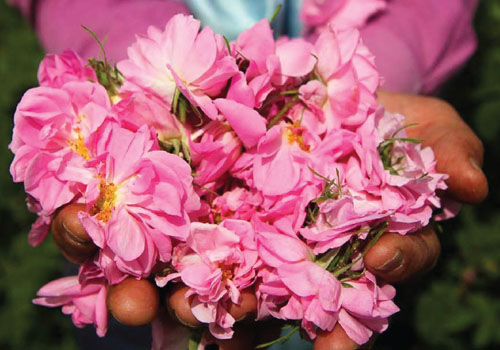Rose water, distilled in ancient Middle East more than 2,500 years ago, was used for culinary, medicinal, and spiritual purposes. Invented in the Middle East around the ninth (9) century CE by polymath Avicenna (Ibn Sina), who refined the steam-distillation method still used today. The technique spread rapidly through the Islamic world, later reaching Europe via the Crusades and trade routes.

- Pure Floral natural elixir that brings balance and beauty inside and out.
- Antioxidant Rich: helps combat signs of aging and environmental stress.
- Mood Enhancer: A light floral scent promotes relaxation and emotional balance.
- Instant Hydration: Revives tired and dull skin.
- Natural Toner: Minimizes pores and evens tone.
- Smoothing formula: Calms irritation and reduces redness.
- Clean & Gentle: Alcohol-free, paraben-free, Fragrance-free
- Versatile use: Perfect as a facial mist, setting spray, or hair refresher.
Uses Through the Ages
- Culinary – Flavoring for baking and cooking providing aroma and sweet taste, adds flavor to tea, and festive dishes (still common in Middle Eastern, South Asian, and Mediterranean cuisines).
- Cosmetic – Natural toner and moisturizer, used in skincare for centuries.
- Medicinal – Soothing properties for eyes, skin, digestion, and emotional balance.
- Spiritual – Purification in rituals, prayer ceremonies, and even sprinkled on tombs and holy places.
Rose water is commonly used in skincare, cooking, and wellness for its fragrance and antioxidant qualities.
Cultural Significance
- Middle Eastern Culture: Used in royal feasts, rituals, and perfumes. Often sprinkled on guests as a gesture of hospitality.
- Islamic Tradition: Used in religious ceremonies, mosque purification, and spiritual cleansing.
- Indian Ayurveda & Unani Medicine: Treasured as a cooling, balancing agent for the body and emotions.
- Ottoman Empire: Widely used in desserts like Turkish delight, sherbets, and as a facial tonic.
